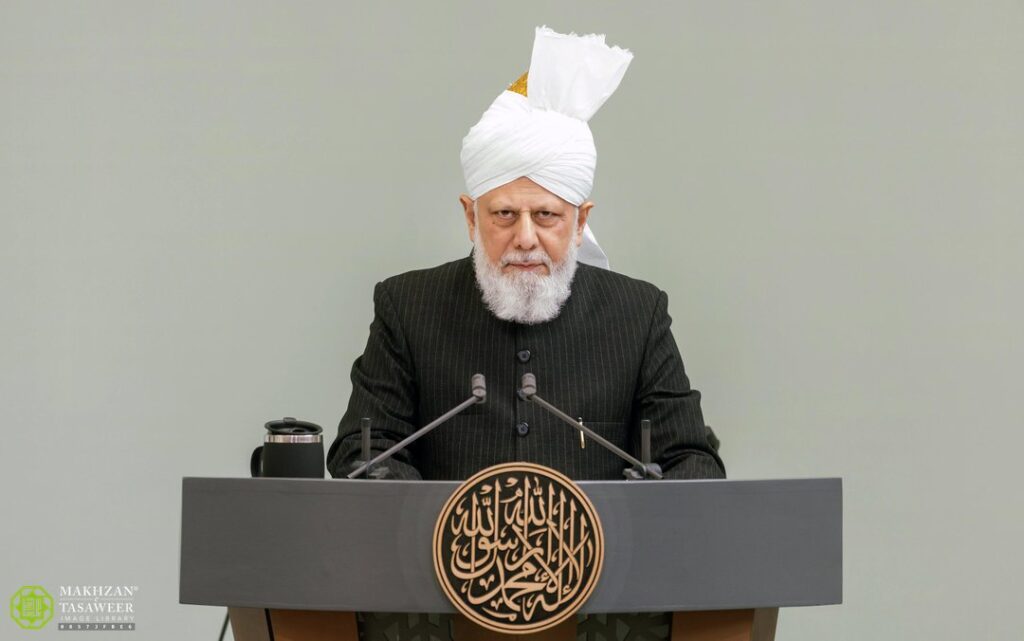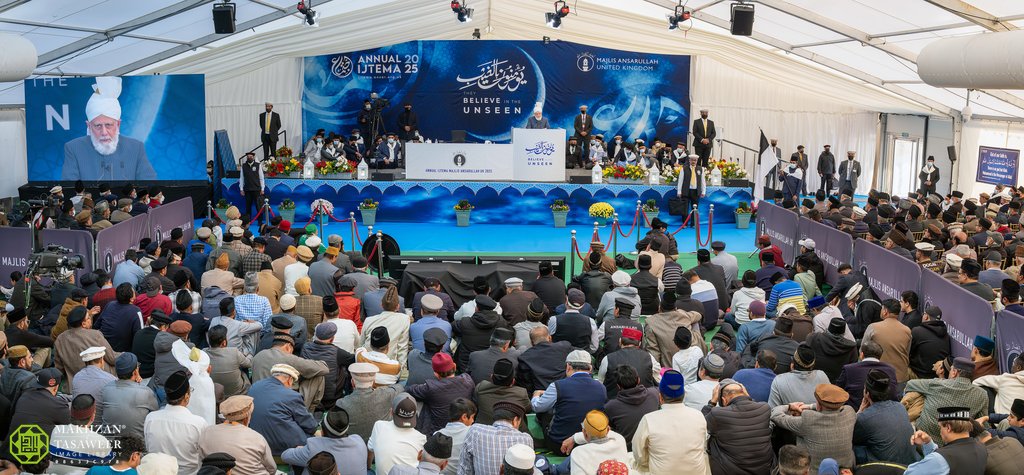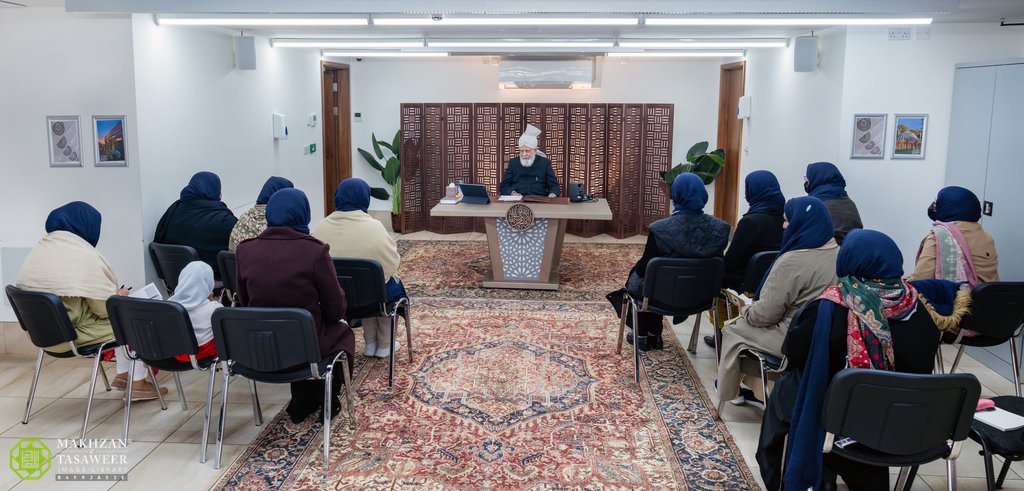
Hazrat Mirza Masoor Ahmad Highlights The Magnanimous Treatment Of Prisoners Of War At Battle Of Hunain
On Friday 3 October 2025, His Holiness, Hazrat Mirza Masroor Ahmad, the Worldwide Head of the Ahmadiyya Muslim Community, continued his narration of the events following the defensive expedition of Hunain.
His Holiness described how, after Hunain, the spoils and detainees were gathered at Ji‘ranah while the Holy Prophet Muhammad (peace and blessings of Allah be upon him) waited days, hoping the Hawazin tribe would come, repent and seek reconciliation. When their delegation arrived, the Holy Prophet (peace and blessings of Allah be upon him) personally led the way by freeing the prisoners who were under his care, and then encouraged the Companions to follow suit and even arranged compensation so no one felt aggrieved. These actions of the Holy Prophet (peace and blessings of Allah be upon him) exemplify the extraordinary compassion he extended even to those who had once opposed him and threatened his life and the lives of the Muslims.
His Holiness explained that the Holy Prophet (peace and blessings of Allah be upon him) was a great leader who guided through his own example, inspiring his followers to embody virtue and walk steadfastly upon the path of righteousness.
His Holiness noted that all captives – around six thousand – were ultimately freed by the Muslims, and the Holy Prophet (peace be upon him) insisted they depart clothed, arranging new garments where needed. The Holy Prophet (peace and blessings of Allah be upon him) stated: “Let none of them depart except in a fresh garment.”
During the Friday Sermon, His Holiness recounted how the former enemy commander Malik bin ‘Awf embraced Islam after witnessing the generosity and magnanimity of the Holy Prophet (peace and blessings of Allah be upon him). His Holiness stated:
“This was the very Malik bin ‘Awf who had once gathered all the tribes of Hawazin, Thaqif and others to annihilate the Muslims. He thirsted for the Holy Prophet’s (peace and blessings of Allah be upon him) blood, yet the Holy Prophet (peace and blessings of Allah be be upon him) was only ever thirsty for him to be rightly guided. And when Malik came seeking that guidance, not only did the Holy Prophet forgive everything, but he honoured him further with a gift of one hundred camels – the most prized wealth of that time.”
His Holiness also narrated the incident of Shaimah, the foster-sister of the Holy Prophet (peace and blessings of Allah be upon him), who was found amongst the captives after the Battle of Hunain. His Holiness explained how the Holy Prophet (peace and blessings of Allah be upon him) received her with great respect and affection. She was given the choice to remain among the Muslims, where she would be honoured and cared for, or to return to her tribe. This, illustrates the dignity and freedom that Islam granted to women even in that era.
Hazrat Mirza Masroor Ahmad stated:
“The Holy Prophet (peace and blessings of Allah be upon him) welcomed her, and tears began to flow from his eyes. He inquired after his foster parents, to which she replied that they had passed away. The Holy Prophet (peace be upon him) said, ‘If you prefer, you may stay with us, where you will be honoured, respected, and loved. But if you wish to return to your people, I will uphold the bond of kinship and permit you to go back to them.’ She replied that she wished to return to her tribe. Nevertheless, she accepted Islam.”
Towards the conclusion of his Friday Sermon, His Holiness addressed the objections of certain orientalists, including William Muir, Montgomery Watt, and Margoliouth, who have levelled unfounded claims regarding the emancipation of prisoners following the Battle of Hunain.
With regard to Muir, His Holiness explained that Muir alleged the Holy Prophet (peace and blessings of Allah be upon him) distributed the spoils of Hunain in a manner that reflected favouritism or self-interest. His Holiness clarified that such claims have no basis in reliable Muslim sources, all of which consistently record that six thousand captives were eventually set free. Even Muir himself admits that “all the captives of Hunain were freed,” a fact which undermines his own criticism.
Regarding Watt’s suggestion that some accounts of Hunain may have been later embellishments, His Holiness responded that Watt’s admission itself proves that the core fact of emancipation and mercy is undeniable. His Holiness explained that Watt only speculates about extra details but cannot dispute the historical record that the Holy Prophet (peace and blessings of Allah) acted with unmatched compassion.
Similarly, Margoliouth’s allegation that Malik bin ‘Awf, the enemy commander, was coerced into Islam was firmly refuted by His Holiness, who clarified that Muslim sources record that Malik bin ‘Awf was invited by the Holy Prophet (peace and blessings of Allah be upon him) with dignity and Malik accepted Islam voluntarily as he was moved by the Holy Prophet’s (peace and blessings of Allah be upon him) generosity. Later he served as a loyal Muslim leader and to portray this mercy as coercion is a distortion.

